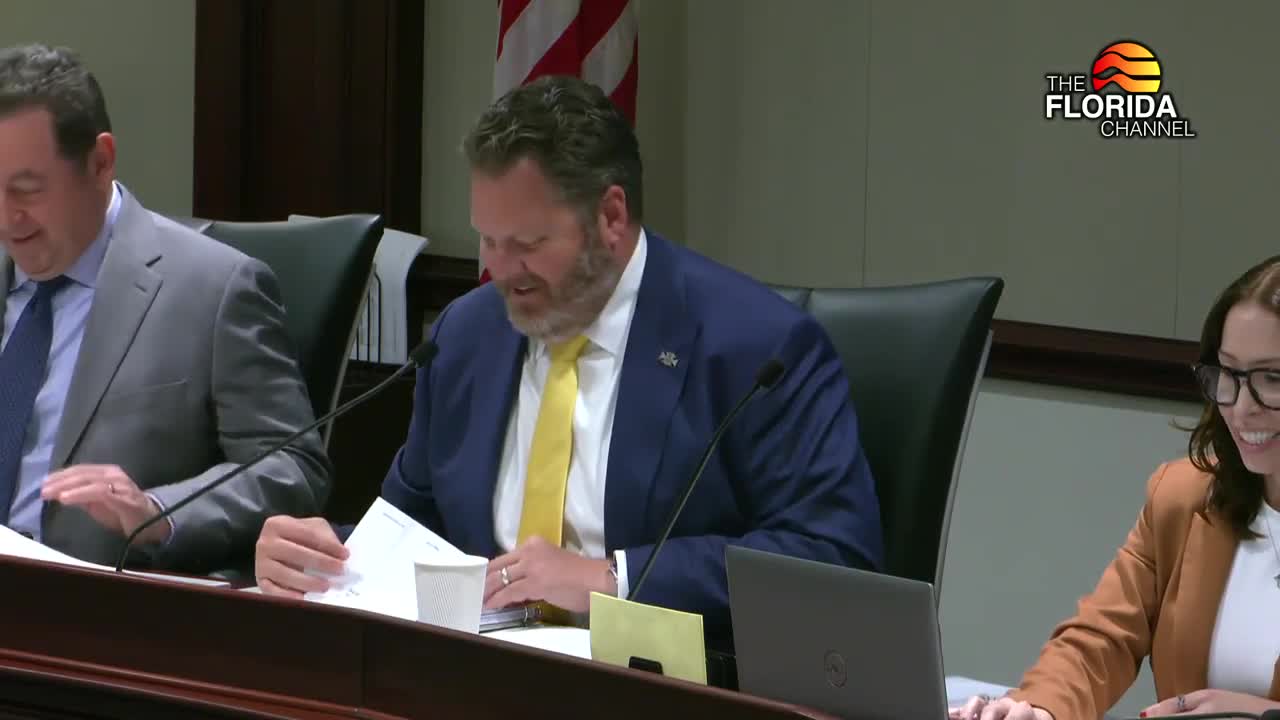Florida justice agencies press Senate panel for pay boosts, court staffing and system upgrades
Get AI-powered insights, summaries, and transcripts
Subscribe
Summary
State prosecutors, public defenders, regional conflict counsel, court administrators and related offices told the Senate Appropriations interim committee they need new funding for pay, courtroom staffing, victim services and information‑technology upgrades, and flagged a shortfall in federal VOCA and due‑process funding.
At a Florida Senate Appropriations Committee interim meeting, representatives of state attorneys, public defenders, the Justice Administrative Commission and related court offices presented a package of legislative budget requests asking the Legislature to close funding gaps for prosecutors and defenders, fund new judgeships, move some victim services off declining federal Victims of Crime Act (VOCA) grants, and pay for a transition to the state’s new accounting system.
The requests matter because they determine whether courts have enough attorneys, investigators and support staff to handle new criminal judgeships, protect victims’ services as VOCA funding falls, and maintain legal defense for indigent defendants. Agency leaders said shortfalls are already shaping charging and case decisions in circuits across Florida.
Brian Kramer, a state attorney and treasurer of the Florida Prosecuting Attorneys Association, told the committee a principal priority is to “true up” underfunded circuits that have not kept pace with population and workload changes. Kramer said his office estimates the total cost to bring underfunded circuits into alignment with the existing funding formula at $35,500,000. He also outlined staffing costs tied to 14 criminal judgeships added by the Legislature last year and said the associated request to staff those judgeships totals roughly $8.7 million, based on a survey of state attorneys’ offices.
“Victim services are critical to each of our operations,” Kramer said, citing the federal Victims of Crime Act. He told Senators that because VOCA funding arrives years late and fell during the COVID funding slump, prosecutors would like to move some victim‑services positions from VOCA to general‑revenue funding and proposed an $8 million shift in that direction. Kramer also said the Justice Administrative Commission projects a $2.5 million due‑process shortfall this fiscal year for expert witnesses, depositions and related costs that JAC currently pays across offices.
Public Defender Stacy Scott, president of the statewide Public Defender Association, urged a higher minimum starting salary for assistant public defenders. “We’re asking to raise the minimum starting salary for an assistant public defender to $80,000 per year,” Scott said, explaining the statutory minimum in the General Appropriations Act is currently $50,000 while actual hiring in most circuits already ranges from about $64,000 to $75,000. Scott and other defenders said salary gaps are contributing to turnover and disrupting the balance between prosecutors and defenders in many circuits.
Scott also presented a data‑driven request to reduce disparities between public defender and state attorney salary pools. Her office asked the committee for roughly $17 million in general revenue to raise underfunded public defender circuits to 55% of the corresponding state attorney salary level, a threshold the presenters said would ease recruitment pressure in the most affected circuits.
Rip Colvin, executive director of the Justice Administrative Commission, described two JAC budget items tied to Florida PALM, the state’s replacement for its legacy accounting system (FLAIR). He said a delayed go‑live pushed staff‑augmentation needs from a $550,000 request to “just over a million dollars” and that JAC’s broader PALM implementation request includes 9 FTE and about $1.1 million in recurring costs. Colvin also summarized rates paid to private, court‑appointed counsel under legislative rates in the General Appropriations Act, saying hourly rates remain $100 for capital cases and $75 for other cases and “those rates were established by the legislature in 2007.”
Regional counsel and capital‑collateral counsel also outlined targeted requests. Candace Brower, regional counsel for Florida’s First Region, asked to increase the minimum pay step for regional conflict counsel attorneys to $63,000 and asked the Legislature to allow certain regional council attorneys to earn senior‑management‑service retirement to improve retention. Suzanne Keffer, for the Capital Collateral Regional Counsel (CCRC) South, described a combined CCRC request of about $1.2 million to add litigation teams and case‑related funds where caseloads have doubled or increased and to receive a competitive area differential in South Florida (CCRC South requested $211,904 for that differential).
Dennis Moore, executive director of the Guardian ad Litem Office, said the office now represents every child in the state dependency system and asked for salary adjustments to reduce turnover: an approximate $455,000 request to raise senior attorneys to $70,000 and managing attorneys to $80,000. Moore told the committee his office represented more than 31,500 children last year and that volunteers provided almost 200,000 hours and drove about 1 million miles.
A committee member also relayed an administrative request on behalf of clerks of court and the Court Operations Corporation for $5.5 million to reimburse clerk offices for costs tied to injunctions for protection, Baker Act and Marchman Act filings, and papers related to violent predator cases.
Public comment at the end of the meeting included a request from Dana McCool of Foundation to Freedom seeking better access to nonidentifying datasets about civil protection orders. “We are missing the datasets from judges as they are issuing orders of protection,” McCool told the panel, saying advocates need the data to apply for funding for recovery houses and domestic violence shelters.
No bills were taken or votes recorded on the budget requests during the session; committee members asked for follow‑up data in several instances and presenters said they would supply spreadsheets and circuit‑level breakdowns. The committee recessed with a plan to continue presentations in a subsequent interim meeting.
